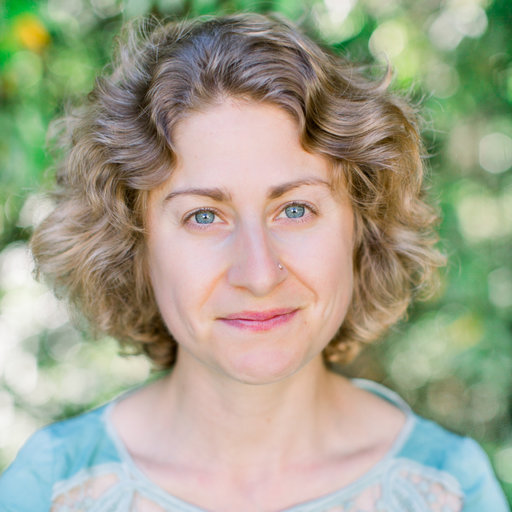19th January 2024
Humanitarian Xchange 2024 – The inaugural hybrid conference from Save the Children UK and the Humanitarian Leadership Academy will hold on February 20, 2024 online and at the Business Design Center in Islington, London.

HX will host valuable conversations and insights with humanitarians making real change in their areas of specialty. One of such conversations is with Hannah Wild, General Surgery Resident at University of Washington, Department of Surgery.
During her online session at HX, Hannah will share real life experiences from The Mine Action Trauma Care Collaborative. We had a chat with Hannah to learn more about her personal journey and what to look forward to in her session:
In your journey, what is one personal experience that drastically changed your humanitarian outlook and possibly the trajectory of your work?
Between college and medical school, I received a traveling fellowship to conduct ethnographic fieldwork with the Nyangatom, a group of nomadic pastoralists on the Ethiopia-South Sudan border.
At that time, I already knew I wanted to dedicate my life to humanitarian surgical care in conflict settings. As a college graduate without clinical skills, I felt the most useful undertaking I could pursue would be to gain an understanding of what life was really like for communities affected by conflict (in this case, violent cattle raiding) in areas rarely accessed by aid.
I lived with the Nyangatom and migrated with their cattle camps for over a year, building some of the most impactful relationships of my life. This experience gave me an indelible sense of how profoundly communities’ lived realities can differ from the narratives and perspectives available in more easily accessible places.
What informed setting up the Mine Action Trauma Care Collaborative?
Explosive weapons (EW) have a devastating impact on civilians in modern conflict, with a disproportionate impact on women and children.
Civilians comprised 97% of all barrel bomb deaths between 2011-2016 in Syria; approximately 66% of explosive deaths in Gaza before October 2023 were women and children – the list, heartbreakingly, goes on and on.
Humanitarian mine action (HMA) stakeholders address the threats posed by mines, explosive remnants of war, and improvised explosive devices through activities including clearance, explosive ordnance risk education, victim assistance, and stockpile destruction.
In some of the EW-affected conflict and post-conflict settings where they work, mine action operators may be the best-resourced medical capability present. Yet currently, few strategies exist for coordination between HMA and the health sector.
In 2021, the International Mine Action Standard (IMAS 13.10) on Victim Assistance was adopted, setting the stage for increased HMA engagement in strengthening trauma care for civilian EW casualties. In this context, I contacted Christelle Loupforest, Deputy Coordinator of the Mine Action Area of Responsibility. We agreed to establish a collaboration that leveraged the University of Washington’s expertise in trauma systems strengthening in low-resource settings with the United Nations Mine Action Service (UNMAS’) expertise in mine action to try and reduce preventable death and disability among EW casualties. This collaboration has grown into the Mine Action Trauma Care Collaborative.
Your online session at HX will share how the Mine Action Trauma Care Collaborative is addressing a collaboration gap – creating partnership pathways between the humanitarian mine action sector and emergency health responders in conflict settings. What should the audience look forward to learning?
The audience will come away with an understanding of how humanitarian mine action stakeholders like the United Nations Mine Action Service (UNMAS) and Mines Advisory Group (MAG) can utilize their expertise to improve trauma care and reduce preventable death and disability among civilian victims of explosive violence.
If you could change the world by doing just one thing, what would it be?
I would change the emotional filter that allows some people to feel differently about the suffering of others than they do their own.
Will you join in the conversation? Join in person or online – registration is still open and the Humanitarian Xchange is free to attend.
More on Hannah’s hybrid session:
Title: The Mine Action Trauma Care Collaborative
Time: 15:30-16:25GMT
Format: Panel Discussion & Debate
About Hannah
Hannah Wild, is a General Surgery Resident at the University of Washington focused on humanitarian response for civilian casualties in conflict settings. Her clinical interests are in trauma surgery and critical care. She received her undergraduate degree from Harvard University and M.D. from Stanford University School of Medicine with a Scholarly Concentration in International Humanitarian Health. Her current work focuses on improving humanitarian surgical care for civilian casualties in conflict settings, particularly for victims of explosive weapons. In collaboration with the United Nations Mine Action Service, International Blast Injury Research Network, and Pediatric Blast Injury Partnership, she leads the Mine Action Trauma Care Collaborative, an effort to strengthen coordination between the mine action sector and trauma care for victims of explosive violence.
